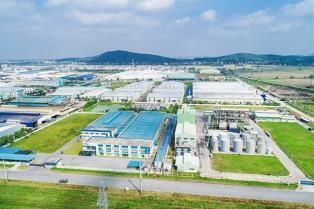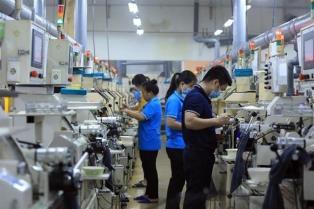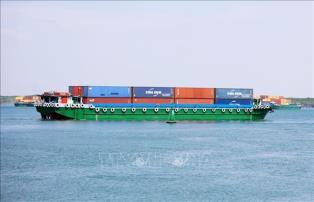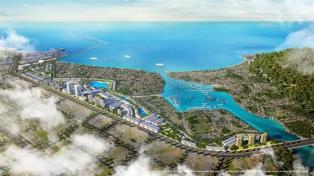Hà stated that Việt Nam regarded the development of the Halal industry as a new and important direction to unlock the global Halal market and foster new growth drivers.
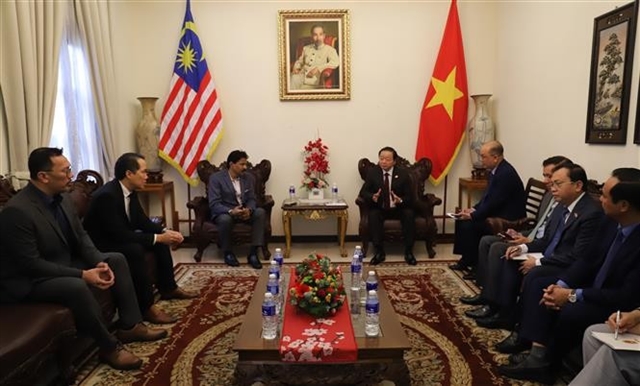
KUALA LUMPUR — Vietnamese Deputy Prime Minister Trần Hồng Hà on Thursday received representatives from several Malaysian associations and enterprises to promote bilateral trade and investment co-operation in general and the development of the Halal industry in particular.
The meetings took place within the framework of Vietnamese National Assembly Chairman Trần Thanh Mẫn’s trip to attend the 46th General Assembly of the ASEAN Inter Parliamentary Assembly (AIPA-46) and pay an official visit to Malaysia.
At the meeting, President of the Malaysia–Vietnam Chamber of Commerce (MVCC) Richard Khor expressed his wish for strengthened co-operation so that Vietnamese companies could use Malaysia as a platform to expand the production of Halal products globally, as well as to support Vietnamese companies in obtaining Halal certification from JAKIM - the Malaysian Government agency responsible for managing and issuing international Halal certification.
Appreciating the MVCC’s co-operation initiatives, Hà stated that Việt Nam regarded the development of the Halal industry as a new and important direction to unlock the global Halal market and foster new growth drivers. Although Halal is a new sector, Việt Nam is making efforts to establish its position on the global Halal map.
Việt Nam is building a Halal testing laboratory system, Hà said, suggesting that MVCC connect with Halal regulatory agencies to support the dispatch of experts for training, experience sharing, and technology transfer to operate Halal laboratories that meet Malaysian standards and gain international recognition.
Once the laboratories meet the necessary standards, investments in Halal production, business, and trade will increase. He emphasised that Việt Nam had several advantages for developing the Halal industry compared to other countries in the region. These advantages included a young and skilled workforce as well as an abundance of diverse local raw materials.
Hà proposed that future co-operation on Halal should focus on promoting negotiations, signing, and mutual recognition of Halal certification; welcoming investment in Halal-related sectors such as agriculture, tourism, pharmaceuticals, cosmetics, and supporting industries; facilitating Halal certification for Vietnamese products to participate in the global supply chain; co-operating in experience sharing, legal and technical support, training, and human resources development for this industry; and supporting the promotion and marketing of Vietnamese products and services in the global Halal market.
In addition to the Halal sector, the Deputy PM suggested the MVCC introduce reputable member companies to explore business and investment opportunities in Việt Nam in other fields such as energy, real estate, digital transformation, green transition, energy infrastructure, telecommunications, education, and healthcare through forms of direct investment or joint ventures.
To better support enterprises, he also proposed the chamber consider opening a representative office in HCM City or Hà Nội in the near future.
Richard Khor noted that, along with supporting Malaysian enterprises to invest and do business in Việt Nam, Malaysia also hoped to see more Vietnamese companies invest in Malaysia in such sectors as electronics, semiconductors, artificial intelligence (AI) data centres, and food processing.
Also on Thursday, Hà received Azlan Azri Zainal Abidin, manager in charge of Industrial and Logistics Development at Sime Darby Property Berhad, one of Malaysia’s major real estate developers with numerous urban, industrial, and energy projects. Azlan expressed his desire to co-operate with Việt Nam in developing industrial zones and logistics, as well as green and smart urban areas.
Hà stated that building and developing a system of green, smart, modern, and sustainable urban areas, industrial zones, and logistics facilities with a good environment and quality of life was one of Việt Nam’s top priorities to accelerate the pace and quality of urbanisation and urban economic development.
Việt Nam encourages foreign enterprises with technology, capacity, and experience to invest in infrastructure development, major urban centres, clean energy, industrial zones, and logistics. Such co-operation would help enhance investment attraction, create momentum for socio-economic development, and improve national competitiveness, he said. — VNS

